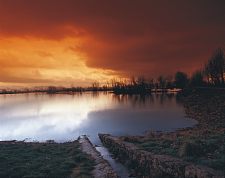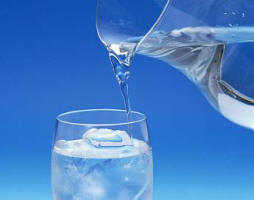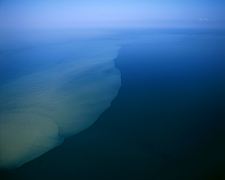 Rio+20: Will it help save the planet? “The time for change is now!”
Rio+20: Will it help save the planet? “The time for change is now!”
From June 20–22, 2012 in Rio de Janeiro, Brazil, heads of state, UN agencies, and global stakeholders are convening for the United Nations Conference on Sustainable Development (UNCSD), commonly known as “Rio+20.” The Rio+20 summit is a follow-up to the landmark 1992 Earth summit in Brazil, at which international treaties to tackle climate change and conserve the Earth’s diversity of plants, animals, and other life forms were agreed.
The world is at a crossroads: the convergence of global economic meltdown and unchecked global warming is driving action in the streets, from the Arab Spring to the Occupy Movement. We must seize this momentum and use Rio+20 to force a paradigm shift. Environmental and economic justices are intrinsically linked. Market-based strategies that commodify all of nature have increased inequality and failed to reduce emissions or protect ecosystems. In addition, some civil society organizations are considering the “green economy” concept as a Trojan horse for further destruction of nature! Building a global consensus on sustainability is becoming increasingly difficult as a result of economic crises in the world, mainly in EU, and a US political climate that is increasingly hostile to action on climate change. In this context, there is no doubt about how much the economic crisis is affecting the goal of sustainable development, as each country seeks to protect its own interests and forget a bit about common interests and commitments, and unfortunately there are some countries that make this goal of a green growth or development as a way to revive protectionism.
In fact, the climate of economic crisis, recession in Europe, stagnation in the US, a slowdown in the Asian giants affects and influences the whole world.
From water actors side, and as an expert working in water issues among EMWIS (Euro-Mediterranean Information System on know-how in the Water sector), I can say that there is a certain satisfaction, despite the shortcomings of the general plan of the Rio Declaration 20 which are be adopted today Friday. As known, water is at the foundation of sustainable development as it is the common denominator of all global challenges: energy, food, health, peace and security and poverty eradication. As such, the preparations for Rio+20 have highlighted seven areas which need priority attention. These include decent jobs, energy, sustainable cities, food security and sustainable agriculture, oceans, disaster readiness and water.
There is a specific chapter on Water and Sanitation, as well as food security and energy. It has not been an easy job for the negotiators. Too many issues. Too many contentious topics. Some have been debated up to the last minute (including in the chapter on Water). However, there are some spotlights to be mentioned:
-The recognition of the contribution of “water and sanitation within the three dimensions of sustainable development” and of the “importance of integrating water in sustainable development” makes that Water is a good candidate for a Sustainable Development Goal and that it is no longer viewed as a purely Environmental issue.
-The stressing of the need to adopt measures to significantly reduce water pollution and increase water quality, significantly improve wastewater treatment.
That said, there is a real problem in what is not in the text! Nothing on cross-border cooperation (except for wastewater!) Nor the management basins. This is the result of a staggering decline of “national sovereignty”, the only solution found by the negotiators to resolve their differences. Hence, there is a strong affirmation of “national sovereignty”; which is the way that was found by negotiators to solve their inability to agree on some issues. It is very surprising to see that this concept has appeared as indispensable in a very simple text on water! Water is undervalued everywhere in the world but water sovereignty is not. The collateral damages are on transboundary co-operation and river basin management, which have disappeared from the global landscape. Obviously, basin management is an issue for countries that depend on a common watershed and consider their “national sovereignty” as not negotiable. We can wonder whether this repeated affirmation of a political concept that was decided in the XVIIth century (Westphalia Treaty – 1648) is still fully adapted to our XXIst century and our globalised world in which we all depend from other countries.
The two hottest water-related topics in international negotiations on water are these transboundary issues and the right to water and sanitation. Up to now they were separate issues. Unfortunately, in Rio+20 they have become interlinked.
The good news: Water is quoted in many other thematic parts of the text: Food security and nutrition and sustainable agriculture, Sustainable cities and human settlements, Health and population, Biodiversity, Desertification, land degradation and drought, Mountains. However, there is also bad news: no mention of Water in the chapter on Energy.
The principle to adopt global Sustainable Development Goals before 2015 (with progress assessed by targets and indicators) is one of the major outcomes of the Conference.
Energy seems to be one of the few areas for which a decision for action has already been made with a target of 1.4 bn people to get access to sustainable modern energy services (no timeframe decided).
Overall, the main outcome of the Conference is that the contribution of Water to all 3 dimensions of Sustainable Development is confirmed formally which, between other consequences, makes that Water cannot be restricted to its Environmental component. The next global step is the building of a useful “transformational” Sustainable Development Goal on Water.
| Contact information |
Dr. Jauad El Kharraz, Euro-Mediterranean Information System on the know-how in the Water sector (EMWIS/SEMIDE)
(email: jauad.el-kharraz@semide.org) Phone: +33 492 94 22 93 ; Fax: +33 492 94 22 95 |
|---|---|
| News type | Inbrief |
| File link |
http://www.moroccoworldnews.com/2012/06/45346/rio20-will-it-help-save-the-planet-the-time-for-change-is-now-2/ |
| Source of information | Morocco World News (MWN) |
| Subject(s) | AGRICULTURE , ANALYSIS AND TESTS , CHARACTERISTICAL PARAMETERS OF WATERS AND SLUDGES , DRINKING WATER , DRINKING WATER AND SANITATION : COMMON PROCESSES OF PURIFICATION AND TREATMENT , ENERGY , FINANCE-ECONOMY , HEALTH - HYGIENE - PATHOGENIC MICROORGANISM , HYDRAULICS - HYDROLOGY , INDUSTRY , INFORMATION - COMPUTER SCIENCES , INFRASTRUCTURES , MEASUREMENTS AND INSTRUMENTATION , METHTODOLOGY - STATISTICS - DECISION AID , NATURAL MEDIUM , POLICY-WATER POLICY AND WATER MANAGEMENT , PREVENTION AND NUISANCES POLLUTION , RIGHT , RISKS AND CLIMATOLOGY , SANITATION -STRICT PURIFICATION PROCESSES , SLUDGES , TOOL TERMS , TOURISM - SPORT - HOBBIES , WATER DEMAND , WATER QUALITY |
| Relation | http://www.uncsd2012.org/ |
| Geographical coverage | Brazil |
| News date | 22/06/2012 |
| Working language(s) | ENGLISH |
 you are not logged in
you are not logged in





